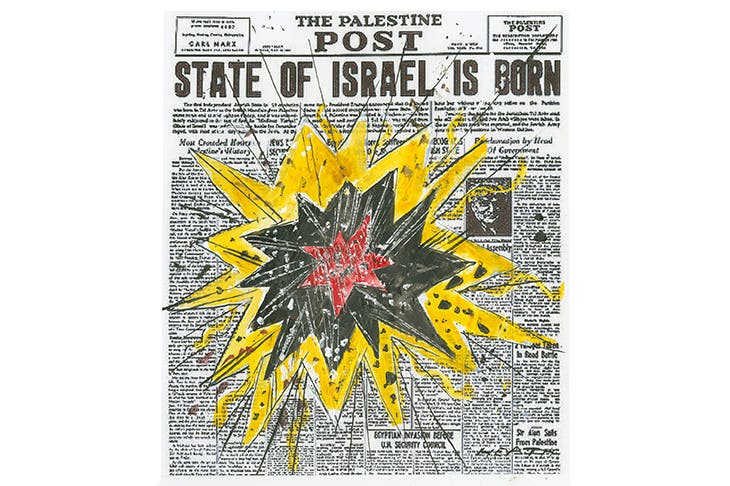On the Israeli side of the Syrian border, near al-Quneitra, you can watch the war. From my vantage point on the hill, I see a town held by Jabhat al-Nusra and another held by Nusra’s enemy, Bashar al-Assad’s regime. Behind a hill in the distance, I’m told by my Israeli guide, is an area controlled by Isis. Near a road blockade, a sign reads ‘Mortal Danger. Any person who passes endangers his life’ — a point reinforced by the rumble of mortars exploding and the screams that follow. I’ve never heard anything like it. The photographer I’m with is braver than me, or perhaps more foolish. He ventures past the sign for a better view. Almost instantly, a sniper in the distance starts firing in his direction. We both panic and leg it back to our bus.
I’m on a trip to Israel run by Bicom, the Britain-Israel Communications and Research Centre. Syria is a pressing question for the Israelis right now, and plenty of people want to show us why. The Israelis fear the growing influence of Hezbollah in Syria. Meanwhile Iran, Israel’s nemesis, is strengthening its position with Russian support. As usual, the Israelis obsess over security and how to defend their borders. ‘Smart wall’ technology is the latest defence mechanism. It’s used along both the Lebanese and Syrian borders, and an IDF adviser is eager to tell us about its ‘touchscreen’ system. If a bird lands on the barrier, one type of signal is transmitted. If a person touches it, a more urgent signal is sent. Turkey and Hungary recently licensed the patent, and the Israelis are keen to cash in on the vogue for physical borders. Any other leader shopping for a big new wall will no doubt be given the hard sell.
Read the full article by Lara Prendergast at The Spectator.

